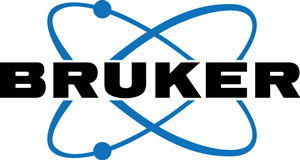Accelerating timelines for development and manufacture of multi-specific antibodies
Published: 25 August 2022
Share this post
- Like
- Digg
- Del
- Tumblr
- VKontakte
- Buffer
- Love This
- Odnoklassniki
- Meneame
- Blogger
- Amazon
- Yahoo Mail
- Gmail
- AOL
- Newsvine
- HackerNews
- Evernote
- MySpace
- Mail.ru
- Viadeo
- Line
- Comments
- Yummly
- SMS
- Viber
- Telegram
- Subscribe
- Skype
- Facebook Messenger
- Kakao
- LiveJournal
- Yammer
- Edgar
- Fintel
- Mix
- Instapaper
- Copy Link
The critical need to rapidly develop new biological therapeutics was emphasised during the COVID-19 pandemic, prompting a sea-change in the speed with which development of complex biological medicines occurs. In parallel, the increasing demand for new molecular formats, such as multi-specific antibodies, to tackle a wide range of disease modalities has led to challenges in expediting the development of the analytical methods and production processes required to bring these new therapeutics to the clinic. In this article Stuart Jamieson and Alice Harrison at Lonza discuss strategies to overcome these challenges and meet the demand to accelerate the speed to clinic of multi-specific, multi-chain new molecular format therapeutics.
Novel treatment options for an array of ever more biologically complex disease modalities require therapies that can simultaneously engage multiple targets. Drug developers have responded by creating diverse families of bispecific (bsAb) and multi-specific antibody (msAb) therapies often comprising three or more polypeptide chains.
Depending on the specific product, critical quality attributes, formulation requirements and selected programme design, it is now possible for standard monoclonal antibody (mAb) therapies to move from gene to Investigational New Drug (IND) submission in as little as nine to 12 months using well-defined platform production methods. However, more complex msAbs present a distinct set of challenges due to common molecule characteristics such as low product yields, incorrect chain assembly, high aggregate levels and undesirable fragmentation that are not observed with mAbs.
The developability, safety and efficacy of a new product must also be considered when establishing commercially viable processes. Nevertheless, speed to clinic is a critical consideration for many biopharmaceutical companies and there is a need to expedite the route to providing new clinical bsAb/msAb therapies. Therefore, this class of molecule still requires effective ways to accelerate development including the employment of appropriate analytical strategies along with suitable upstream and downstream processes to rapidly develop and extensively characterise complex multi-chain molecules.





